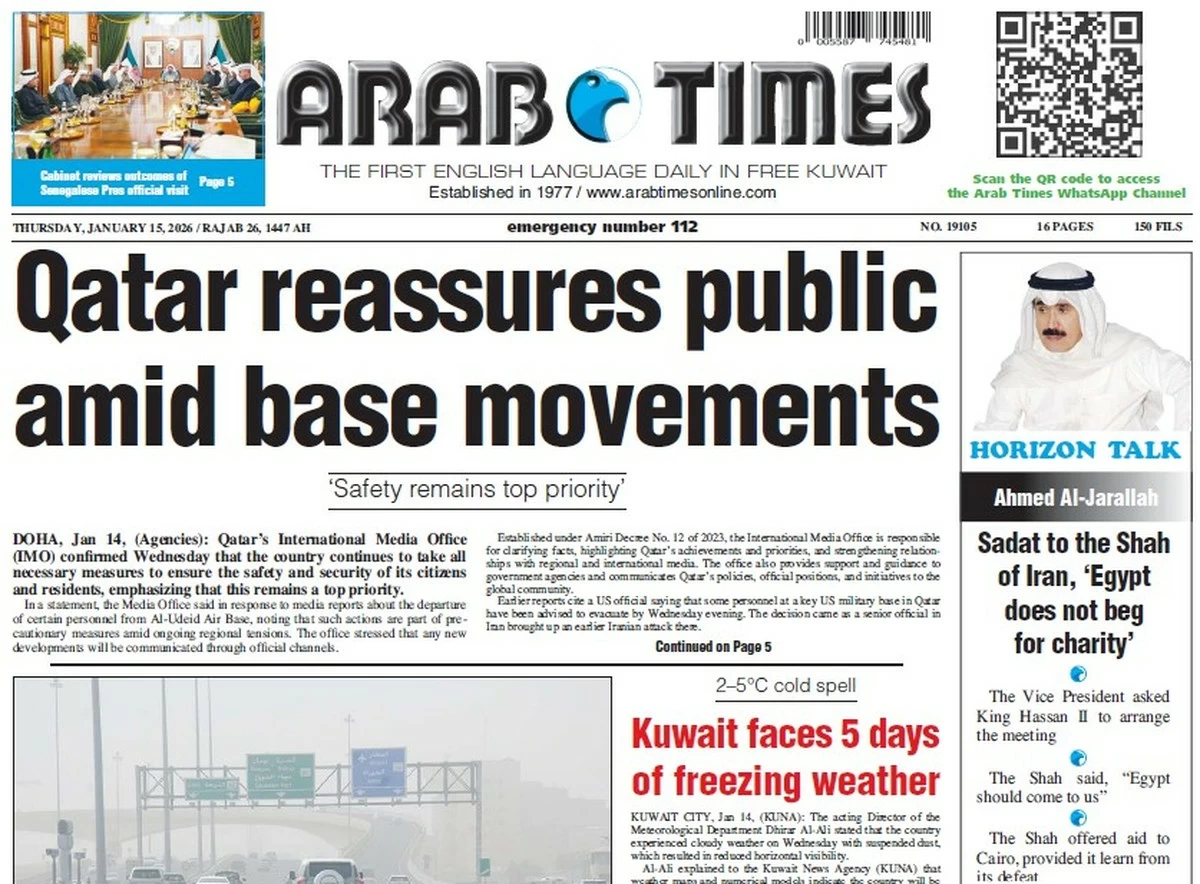09/06/2025
09/06/2025
Shuwaikh Industrial Area and other industrial zones are clear examples in this regard. I urge His Highness the Prime Minister, along with the Ministers of Finance and Commerce and Industry, to visit these areas and witness firsthand the scale and vibrancy of economic activities being driven entirely by individual efforts, with minimal government involvement, while the government remains occupied with issues that provoke public concern and contribute to social unrest. In Shuwaikh Industrial area, as in all similar areas, there are many activities that attract investors.
These businesses operate almost entirely through the efforts of expatriate residents. Citizens are largely absent from these activities, benefiting only through rental income or by investing in licenses issued to them. As a result, a huge portion of profits is transferred abroad. Foreign workers, employees, and investors lack the motivation to remain in Kuwait long-term due to the absence of incentives found in neighboring countries, such as policies that support entrepreneurship, encourage innovation, and ensure economic stability. In countries like Saudi Arabia and the UAE, investors are offered strong incentives, attracting many Kuwaiti companies to invest there.
In contrast, Kuwait ties usufruct rights to the annual renewal of licenses, creating uncertainty for factory and facility owners and discouraging them from investing in development. Therefore, the Council of Ministers should focus on utilizing the labor force represented by stateless residents (Bedoun) and those whose citizenship has been revoked, rather than relying solely on decisions to revoke citizenship and suppress creativity. To be clear, I am not referring to those who lost their citizenship due to fraud or dual nationality. I hope the government encourages the Bedoun residents and those whose citizenship has been revoked to work in these areas, and makes them feel secure, so they can spend their money inside Kuwait.
I suggest the government offer investors the option to purchase industrial and commercial plots during a specific grace period, similar to the system in Saudi Arabia, or will become a fair partner in the rental value. This approach would kill two birds with a stone. Also, Saudi Arabia provides tax incentives for industrial, agricultural, and renewable energy projects. It is true that in recent years, some parliamentary blocs have attempted to obstruct development under flimsy pretexts, but their real aim was to secure a “share of the cake” or fuel disputes between MPs and ministers. Today, ministerial positions have largely stabilized, giving ministers significant potential to drive development and amend obstructive, outdated laws enacted during previous National Assembly terms. Indeed, several laws need reconsideration, and Kuwait must break free from the constraints imposed by the stagnation of innovative ideas that encourage investment and the growth of the national economy.



